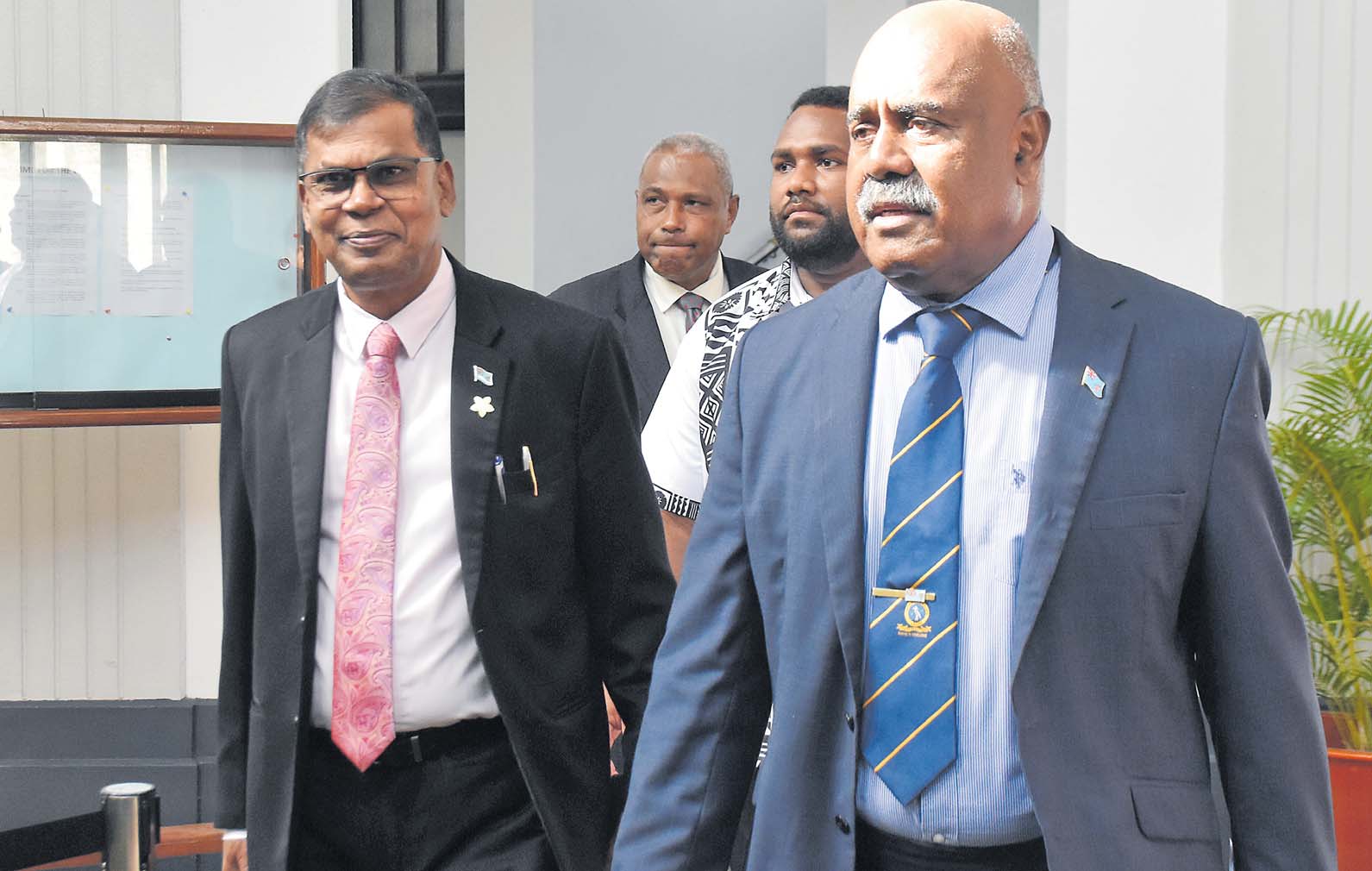The Ministry of Finance has been undergoing numerous reforms to modernise its financial management information systems and processes.
It had embarked on a major IT project to replace the present two-decade-old Financial Management Information System (FMIS) and the 40-year-old payroll system.
In Parliament last week, deputy Prime Minister and Minister of Finance Prof Biman Prasad provided an update on the replacement of the Government’s FMIS that is scheduled to go live on August 1 this year.
What is FMIS and payroll system?
The FMIS system is the accounting system for the whole of Government.
Each year when the budget is approved by Parliament, the Finance Ministry uploads the entire budget appropriation on FMIS; and funds are allocated to individual heads of appropriations, managed by respective permanent secretaries who are chief accounting officers for their ministries.
When a ministry wants to procure an item during the financial year, the ministry’s accounting staff will issue a local purchase order on FMIS. Upon delivery of item and issuance of invoice, the LPO will be closed in the FMIS and a payment generated online with funds transferred to the respective vendor’s bank account.
There are other accounting processes including request to incur expenditure (RIEs), virements (transfer of funds with the appropriation head), cashflow adjustments, excess approvals, reconciliations, redeployments, and procurement processes that continue during the year.
The FMIS is used to generate all financial reports upon completion of the financial year, which are then audited by the Office of the Auditor General and submitted back to Parliament for debate and scrutiny of public funds.
Those processes were done manually around 20 years ago. Between 2004-2006, a major financial reform by the former SDL government included the rollout of the current FMIS system.
“Back then, the size of the budget was only around 25 per cent of the current government spending. The number of users were also significantly lower and the volume of transactions were also small,” Mr Prasad said.
The ‘stand-alone’ payroll system is centrally managed by the Finance ministry to pay the salaries of around 35,000 civil servants.
The payroll system has been around for 40-plus years and was not integrated with FMIS.
Priority transformation
When they came into government almost 17 months ago, Mr Prasad said he was briefed about the challenges with the FMIS system and the “desperate and shocking situation” with the 40-year-old payroll system.
He said that was highlighted as the highest operational risk not only for the ministry but for the whole of government.
He said a $14million budget was approved for a new FMIS, which will have an inbuilt payroll system.
FMIS and Payroll system challenges
First, the payroll system is not integrated with FMIS and means payroll activity is not available in FMIS on real time. This lack of integration and control, Mr Prasad said led to overspending of the salary budget by many agencies over the years.
Second, several processes have to be manually inputted with no provision for uploads and attachments that could bring about efficiency.
Thirdly, he said the payroll software was managed by a single person and exposed the government to significant operational risks.
He said the FMIS system had become quite outdated with challenges in terms of controls, reporting, efficiency and system security. He said reports had to be manually extracted.
“Apart from this, the current FMIS is only accessible through Govnet, which means staff cannot directly access FMIS from home and other locations, which make accounting operations quite challenging.”
Bisan Systems
The Asian Development Bank conducted an independent review on the FMIS/payroll systems. From its technical assessment, it was clear that Government needed a replacement of the FMIS system with an inbuilt payroll system.
It called for a comprehensive request for tender (RFT) with clear requirement specifications, and a tender process for competitive bidding.
Of the 13 bids — eight local and five international suppliers, international firm Bisan Systems was awarded the project. Bisan specialises in government public financial management systems, and it has provided system solutions for governments and state entities in USA, Belgium, UAE, Morocco, Egypt and Marshall Is.
The cost is estimated around $12million, lower than the budgeted $14m, and an annual service fee of around $1m.
Mr Prasad said a 20-member team from Finance and other ministries, ADB and Bisan were involved in the project.
“After almost 14 months of hard work, the team is now doing the user acceptance testing for the system to ensure the system meet the expectations and needs of the users.
“Following this, the ministry will provide further training programs before the new systems will go live on August 1, 2024, the start of the new financial year.”
Benefits
The new system will bring about greater efficiency in government’s accounting processes, improve financial reporting, strengthen internal controls and audit trails, and enhance the web-based system security.
“Overall, financial processing and reporting will be enhanced with real time transaction updates, which is useful for management decision making and policy formulation. Financial statements will be directly extracted from the system with significant improvements in timelines for ministries and departments in preparation of accounts, audit and presentation to Parliament.”
Mr Prasad said this was a major transformative project to modernise the Government financial management information system that fitted in well with all major financial management reforms the ministry has undertaken.
He said they were on schedule for the new FMIS to go live.
“We are now working on the budget simultaneously with the new system rollout.
“I am sure all FMIS users and government ministries will continue to give their full support to this major whole of government project.”



